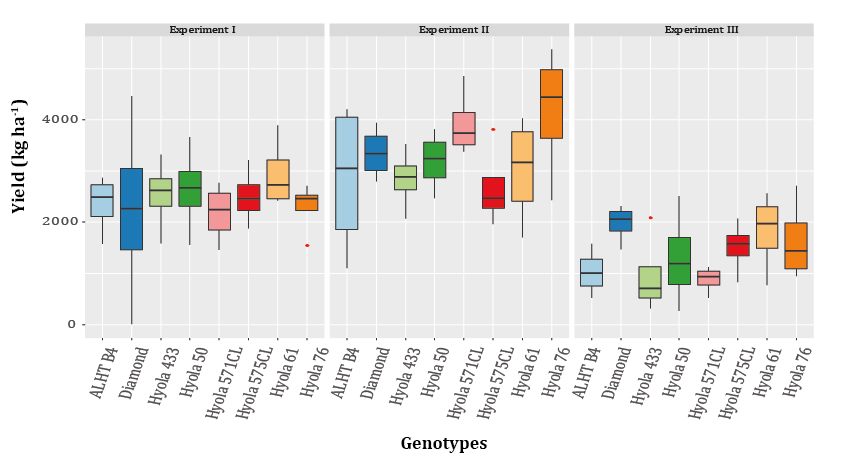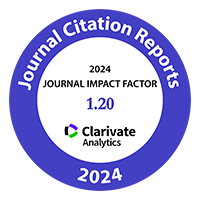Tropicalization of canola: commercial hybrids show potential for cultivation in the Brazilian Cerrado
DOI:
https://doi.org/10.48162/rev.39.035Keywords:
brassica, productivity, oilseed, biodieselAbstract
Canola is a potential feedstock for the production of biodiesel due to its high levels of energy efficiency. However, Brazil has not yet consolidated its production as typical of temperate regions. Thus, the objective of the study was to evaluate the agronomic performance of canola hybrids in the tropical conditions of the Brazilian Cerrado in order to select promising candidates to contribute to the expansion of canola culture in the country. Eight commercial canola hybrids were evaluated for seven agronomic traits, in three experiments with varying water conditions. The data obtained for each variable were subjected to joint analysis of variance and the averages compared using the Scott-Knott test. The grain yield of the evaluated hybrids was higher than the national average, which includes plantations only in the southern region. The hybrids that stood out in grain yield were Hyola 61 and Hyola 76 followed by Diamond, which besides presenting a high magnitude for this characteristic, was less precocious even in dry conditions. Due to its characteristics, the Diamond hybrid can be considered the best option to be inserted in the crop rotation system. These results are promising and reveal adaptation and cultivation potential of these hybrids in the Brazilian Cerrado.
Highlights
- The yield of canola grains in the experiments was promising as the values achieved were above the national average.
- Hyola 61, Hyola 76 and Diamond showed prominent grain yield in relation to the other hybrids investigated.
- Diamond presented high grain yield and shorter cycle, thus being considered the best option for the crop rotation system.
- For the Brazilian Cerrado, the hybrids Hyola 61, Hyola 76 and Diamond are valuable alternatives for planting.
Downloads

Downloads
Published
How to Cite
Issue
Section
License
Copyright (c) 2018 Revista de la Facultad de Ciencias Agrarias UNCuyo

This work is licensed under a Creative Commons Attribution-NonCommercial-ShareAlike 3.0 Unported License.
Aquellos autores/as que tengan publicaciones con esta revista, aceptan las Políticas Editoriales.











.jpg)




